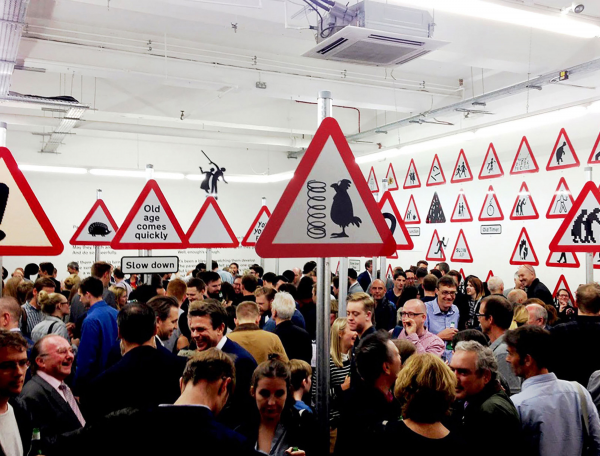


Image Credit : NB Studio

Project Overview
There's British road sign that features a silhouette of a stooping elderly couple with a walking stick. it's a depressing image: not simply out of touch but offensive. NB Studio decided to act and challenged the design community to change the image of ageing.
Project Commissioner
Project Creator
Project Brief
The story began when NB and Michael Wolff started working for a new online brand, Spring Chicken, specialising in better design for older adults. They wanted to help them raise brand awareness. At the same time, they saw the chance to use the power of their network to galvanise their designer friends around an important issue. The response was overwhelming - over 200 designs submitted from artists, illustrators and designers ranging from Milton Glaser to Oliviero Toscani.
Project Innovation/Need
First it caused a stir in the press - every major title picked it up. Then it caught the attention of government when NB lobbied for change at the Department of Transport. After all, this is the generation who came of age in the 1960s and invented youth culture. Admittedly, it might take them a little longer to cross the road these days - probably all that LSD - but that's no reason to insult them with patronising road signs.
Design Challenge
Such was the response that NB were inspired to turn it into an exhibitor, called Sign Of The Times. They produced 100 signs to the exact size and specification of British road signs, hired a London venue and, over four days, welcomed visitors. NB produced a book of the show, then set up an eBay shop to auction off the signs, raising thousands for Age UK.
Future Impact
What had started out as a provocation had become a raucous conversation. Sometimes it's legislation that changes things. Sometimes you just need to see things another way. NB produced a book of the show, then set up an eBay shop to auction off the signs, raising thousands for Age UK.
Tags
Systems - Social Design
Social design applies a design methodology and intervention to tighten the social fabric that holds us together. Addressing issues of social inequality, such as poverty or social isolation, social design is the pathway to a more just and sustainable society.
All systems are designed to serve a purpose – and that purpose is to serve people. Systems design optimises systems performance by systematically focusing on the human component - human capacities, abilities, limitations and aspirations.
More Details

